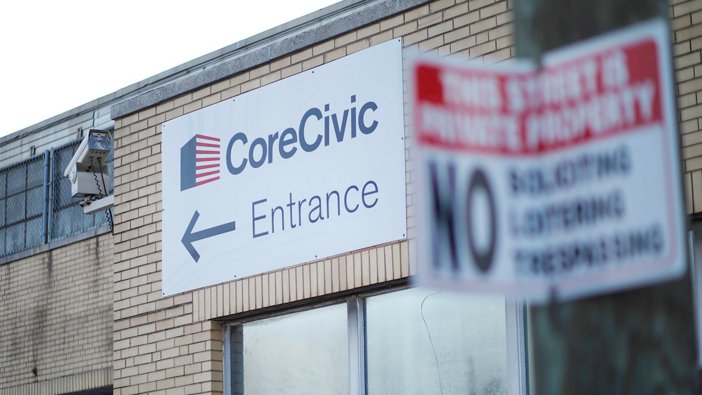
Court Overturns New Jersey ICE Detention Center Ban
Federal appeals court voids New Jersey's ban on privately run ICE detention centers, citing federal supremacy over immigration.
Appeals Court Sides with Federal Government in Detention Center Dispute
A federal appeals court has struck down New Jersey’s law prohibiting the federal government from contracting with private firms to run immigration detention centers in the state, reaffirming the federal government’s authority over immigration enforcement. The 2-1 decision by the 3rd U.S. Circuit Court of Appeals represents a significant win for President Donald Trump and his administration, which has prioritized a nationwide crackdown on illegal immigration.
Judge Stephanos Bibas, a Trump appointee, authored the majority opinion, stating, “Just as states cannot regulate the federal government itself, they cannot regulate private parties in a way that severely undercuts a federal function.” He continued, emphasizing that the New Jersey law “interferes with the federal government’s core power to enforce immigration laws.”
The case centers on a 2021 law signed by Governor Phil Murphy, a Democrat, which blocked CoreCivic, a private prison contractor, from renewing its agreement with U.S. Immigration and Customs Enforcement (ICE) to operate the Elizabeth Detention Center. CoreCivic, which has managed the facility for more than 25 years, sued the state, arguing the law effectively prevented federal immigration enforcement within New Jersey’s borders.
Legal and Political Fallout
The ruling follows a district court decision in CoreCivic’s favor, which New Jersey subsequently appealed. The latest appellate decision upholds the lower court’s finding, enabling the federal government to continue contracting private operators for immigration detention, despite state opposition.
New Jersey Attorney General Matthew Platkin voiced his disappointment on X (formerly Twitter), arguing that entrusting detention to for-profit companies “poses grave risks to health and safety.” Platkin cited recent incidents at other facilities as examples of why states should retain authority to regulate detention standards and promised to evaluate further legal steps.
Ryan Gustin, a spokesperson for CoreCivic, welcomed the ruling, stating, “We appreciate that we've had the opportunity to present our positions to the courts and are grateful to the 3rd Circuit Court of Appeals for reaffirming the federal government's discretion to rely on the Elizabeth Detention Center to support its vital mission.”
The case has reignited debate over the balance of state and federal authority on immigration, with advocates on both sides pointing to public safety and human rights. The dissenting judge in the appellate decision emphasized that states “retain broad latitude to protect the health and safety of people within their borders – particularly where, as here, there is no conflict with federal legislation.”
Related Developments and Ongoing Controversies
The controversy over immigration enforcement in New Jersey has escalated amid high-profile incidents at local detention centers. Rep. LaMonica McIver, D-N.J., was indicted on federal charges after allegedly obstructing Homeland Security agents during a confrontation at Newark’s Delaney Hall facility. The incident occurred during a congressional oversight visit and immigration protest, and has drawn further attention to tensions between state officials and federal agents. McIver has pleaded not guilty to the charges.
As federal and state officials continue to spar over immigration enforcement, the court’s ruling signals that states have limited power to impede federal efforts—especially when it comes to the use of private contractors in support of immigration law. Attorney General Platkin has indicated that New Jersey may consider additional legal action, but for now, the Elizabeth Detention Center will remain under federal contract, reflecting the broader national debate on the future of immigration policy and detention practices in the United States.






